I work with a Spring boot app and have the following entities in the App,
@Entity
public class IpAddress {
@Id
@GeneratedValue(strategy = GenerationType.IDENTITY)
@Column(name = "IP_ADDR_ID")
private Long id;
@Column(name = "IP_ADDRESS")
@NotEmpty
private String address;
@ManyToMany(cascade = CascadeType.ALL)
@JoinTable(name = "IP_ADDR_STATUS",
joinColumns = {
@JoinColumn(name = "IP_ADDRESS_ID", referencedColumnName = "IP_ADDR_ID")
},
inverseJoinColumns = {
@JoinColumn(name = "STATUS_ID", referencedColumnName = "S_ID")
})
private List<HttpInfoMessage> httpInfoMessages = new ArrayList<>();
public IpAddress() {
}
public IpAddress(String address) {
this.address = address;
}
public IpAddress(String address, List<HttpInfoMessage> httpInfoMessages) {
this.address = address;
this.httpInfoMessages = httpInfoMessages;
}
public Long getId() {
return id;
}
public void setId(Long id) {
this.id = id;
}
public String getAddress() {
return address;
}
public void setAddress(String address) {
this.address = address;
}
public List<HttpInfoMessage> getHttpInfoMessages() {
return httpInfoMessages;
}
public void setHttpInfoMessages(List<HttpInfoMessage> httpInfoMessages) {
this.httpInfoMessages = httpInfoMessages;
}
@Override
public boolean equals(Object o) {
if (this == o) return true;
if (!(o instanceof IpAddress)) return false;
IpAddress ipAddress = (IpAddress) o;
if (!getId().equals(ipAddress.getId())) return false;
return getAddress().equals(ipAddress.getAddress());
}
@Override
public int hashCode() {
int result = getId().hashCode();
result = 31 * result + getAddress().hashCode();
return result;
}
@Override
public String toString() {
return "IpAddress{" +
"id=" + id +
", address='" + address + '\'' +
'}';
}
}
And, I have the second entity here,
@Entity
public class HttpInfoMessage {
@Id
@GeneratedValue(strategy = GenerationType.IDENTITY)
@Column(name = "S_ID")
private Long sId;
@Column(name = "STATUS_ID")
private Long statusId;
@Column(name = "STATUS")
@NotEmpty
private String status;
public HttpInfoMessage() {
}
public HttpInfoMessage(String status) {
this.status = status;
}
public HttpInfoMessage(Long statusId, String status) {
this.statusId = statusId;
this.status = status;
}
public HttpInfoMessage(Long statusId, String status, List<IpAddress> ipAddresses) {
this.statusId = statusId;
this.status = status;
this.ipAddresses = ipAddresses;
}
public Long getsId() {
return sId;
}
public void setsId(Long sId) {
this.sId = sId;
}
public Long getStatusId() {
return statusId;
}
public void setStatusId(Long statusId) {
this.statusId = statusId;
}
public String getStatus() {
return status;
}
public void setStatus(String status) {
this.status = status;
}
@JsonIgnore
@ManyToMany(cascade = CascadeType.ALL, mappedBy = "httpInfoMessages")
private List<IpAddress> ipAddresses = new ArrayList<>();
public List<IpAddress> getIpAddresses() {
return ipAddresses;
}
public void setIpAddresses(List<IpAddress> ipAddresses) {
this.ipAddresses = ipAddresses;
}
@Override
public boolean equals(Object o) {
if (this == o) return true;
if (!(o instanceof HttpInfoMessage)) return false;
HttpInfoMessage httpInfoMessage1 = (HttpInfoMessage) o;
if (!getStatusId().equals(httpInfoMessage1.getStatusId())) return false;
return getStatus().equals(httpInfoMessage1.getStatus());
}
@Override
public int hashCode() {
int result = getStatusId().hashCode();
result = 31 * result + getStatus().hashCode();
return result;
}
@Override
public String toString() {
return "Status{" +
"statusId=" + statusId +
", status='" + status + '\'' +
'}';
}
}
When I persist a List in the database, It creates 3 tables,
The Ip Address table, namely ip_address,
The Http message info table, namely http_info_message,
And, the last table namely ip_addr_status maps the IP address ID with the Http Info Message ID,
I guess it good to show the formation of the IpAddress entity,
List<HttpInfoMessage> httpInfoMessages = new ArrayList<>();
for(int i=1;i<=10;i++){
HttpInfoMessage httpInfoMessage = new HttpInfoMessage(404L, "FORBIDDEN_WEB_PAGE");
httpInfoMessages.add(httpInfoMessage);
}
Then add the Http messages to the IpAddress,
IpAddress ip = new IpAddress("177.132.239.67", httpInfoMessages)
In the ip_addr_status table, I would like to add 3 more columns from the fields of address, statusId and status.
How to do that?


